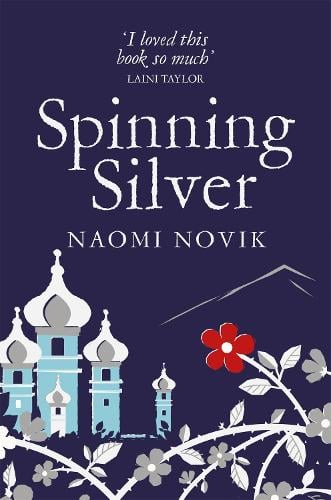
I've called Spinning Silver literary fantasy because it tries hard - possibly a little too hard - to be "literature" first and fantasy second. Although I knew it was a fantasy novel, I actually stopped to check after the first few chapters, because the book could have been a slice-of-life period drama set among the peasants and landowners of pre-revolution (I guess 19th century) Russia - although place names are all, so far as I could tell, invented. But, a magical fantasy novel it definitely is. It's also quite heavy on exposition and explanation at times, making it read more like a retold and dramatised folk tale - there are elements of Rumpelstiltskin and Baba Yaga in there - than a more traditional fantasy novel.
That all said, I enjoyed this book very much - it's intriguing and beautifully written, offering a very welcome change to the more standard tropes. The magical and fantastical elements are introduced gradually and gently: they creep up on you, just as they creep up on the characters in the book. Farmers and peasants struggle against poverty and hunger, but they're also battling more magical, elemental forces: faerie-like and demonic entities that intrude into the real world as folk-tale and rumour. The deep woods are to be avoided, because that's where the monsters and the malign beings dwell...
The story is told through the eyes of three women: Miryem, a moneylender, Wanda, a servant who becomes a friend, and Irina, the daughter of a nobleman. They're each well drawn, with their own distinctive voices and characters. All the characters are three-dimensional and believable. If there's a flaw in the book, it's that its conscious literariness makes the reader work to discover which character is speaking at any one time: the point-of-view switches a lot (which I personally enjoy), but doesn't give you any direct clue about who is speaking, meaning that you have to work it out from context, an effort that sometimes takes several paragraphs. Perhaps it's just me. This task become harder because a first-person narrator is used throughout, making it tricky to work out which I, "I" actually is quite a lot of the time. Instead of losing yourself in the beautifully-crafted prose, you're thinking, "Who is this again?" It could have been easily fixed: a few tweaks to the text, or just the name of the relevant character above each chapter or section, and the book would have flowed much more easily.
If you're looking for a completely escapist book in these troubled times - and who would blame you - this may not be the one to choose as the flight from our world is not total. Miryem encounters depressing anti-semitism during her experiences, and it's also very definitely possible to read the story as a parable of climate change.
But, overall, I loved it and it's highly recommended. The descriptions of snow and ice and cold are wonderfully done, and I really found myself identifying with and rooting for certain of the characters - including some who start off as "bad". That depth is surely the sign of a good book, and I'll certainly look out for more by the author.
Find more about the book at Goodreads.

Thank you.
ReplyDeleteI know neither the author nor the book - and will keep my eyes out for both.